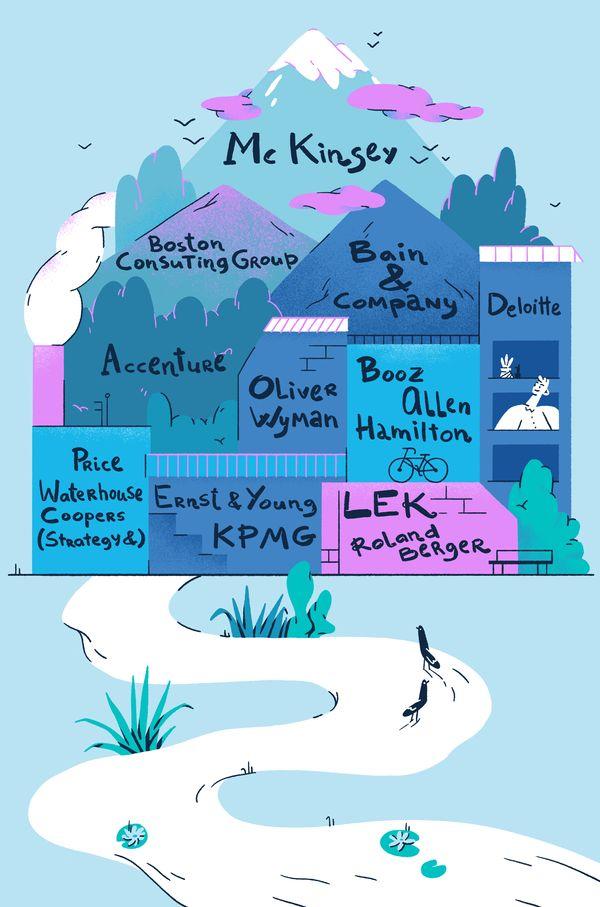What is important to consider when you want to start working in Consulting and what is a typical day of a Consultant at Bain and Company – replies Maxime Crépin (Bo 210)
AFAM: Please tell us more about what your consulting role is about?
Maxime: My role is to help business leaders achieve their goals, and address a wide range of issues, from pure strategy to more operational topics. I've spent most of time helping large tech clients' sales organizations go through mergers or help them design their Go-To-Market strategy. I've also worked on a dozen of private equity due diligences.
AFAM: How did you get where you are now?
Maxime: After Arts et Métiers, I went to UC Berkeley for a Masters' degree. I then joined Bain as an Associate Consultant in 2014. After my promotion to Senior Associate Consultant in 2017, I decided to accept Bain's offer to sponsor me for business school and applied to INSEAD. At the end of 2017, I interned for a start-up in Santa Monica, Surf Air, where I worked as a revenue and strategy manager, working closely with the director of strategy and the CEO. I got my MBA from INSEAD In 2018 and went back to Bain in the San Francisco office.
AFAM: What does your typical day look like?
Maxime: I'm typically on the client site from Tuesday to Thursday. I always start my day by checking my inbox - given our clients tend to be large global organizations, emails can come in at any time of the day and night. I'll usually have a few hours of meetings a day - some of them will be internal (getting input from our own leadership team to make sure we're headed in the right direction), some of them with clients. At a more junior level, a lot of these client meetings revolve around gathering and understanding data, and as I'm getting more senior they start becoming more about what the right answer is (e.g., what org should a type of sales rep roll into). The rest of the day will be split into data analysis (especially true at a more junior level), using Excel but also increasingly tools such as Alteryx or Tableau, which are better suited for large datasets, data gathering (expert network calls, secondary research…) and slide making. 4. What do you like in your consulting role? I love working with extremely sharp people, and learning a lot everyday by working along with them. I also love seeing the impact we have - when we start a new project, the situation often looks messy but by asking the right questions and guiding our clients go in the right way, we're able to achieve awesome performance together. In addition, becoming clients' trusted advisor feels very rewarding. This is also very much a "work hard, play hard" kind of culture, which fits me perfectly.
AFAM: What do you like in your consulting role?
Maxime: I love working with extremely sharp people, and learning a lot everyday by working along with them. I also love seeing the impact we have - when we start a new project, the situation often looks messy but by asking the right questions and guiding our clients go in the right way, we're able to achieve awesome performance together. In addition, becoming clients' trusted advisor feels very rewarding. This is also very much a "work hard, play hard" kind of culture, which fits me perfectly.
AFAM: What are the challenges of your consulting job?
Maxime: The lifestyle can sometimes be a little intense, given the nature of professional services: we need to be available for our clients, and this often means that we need to address their most pressing questions late in the evening or on weekends. Some people also get tired of traveling, but Bain is a great place for that given most of our staffing is done locally. 6. What skills and qualities do engineers need to be successful consultants? Engineers are very well suited for consulting - problem solving is one of the key pillars of consulting and this is an area engineers excel in. The areas where engineers tend to lack the most are client and presentation skills, as well as the ability to work in an environment where there is no single, perfect option.
AFAM: What skills and qualities do engineers need to be successful consultants?
Maxime: Engineers are very well suited for consulting - problem solving is one of the key pillars of consulting and this is an area engineers excel in. The areas where engineers tend to lack the most are client and presentation skills, as well as the ability to work in an environment where there is no single, perfect option.
AFAM: What advice would you give to an engineering student who wants to work in consulting? Start as a junior in a large management consulting company, find an internship in a boutique firm, become an expert in a certain field before breaking into consulting........?
Maxime: I would start directly working in management consulting, given most of the job is best learnt on the job itself, and I would spend a lot of time evaluating the nuances between the firms. For instance, the Bain staffing model is very different from the one McKinsey offers, and this is something important to consider. And if consulting doesn’t work straight out of engineering school, I would work in a different field for 2-5 years and then do an MBA to make the switch to consulting.

Consulting firms according to caseinterview.com
Discover other interviews of "Why Consulting?" series:
François Théry (Li 96), Accenture
About internship opportunities at Bain and Company in the US:
How to Apply: Please apply via your campus career center in the US and the Bain and Company Careers website.

 BLOG /
BLOG /  CALENDAR /
CALENDAR /  DONATIONS /
DONATIONS /  MENTORS /
MENTORS /